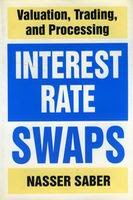The event that set him on the discovery was an exchange about death and freedom during the Republican presidential debate. According to Krugman:
CNN’s Wolf Blitzer asked Representative Ron Paul what we should do if a 30-year-old man who chose not to purchase health insurance suddenly found himself in need of six months of intensive care. Mr. Paul replied, “That’s what freedom is all about — taking your own risks.” Mr. Blitzer pressed him again, asking whether “society should just let him die.”Krugman singled out Milton Friedman and his Free to Choose TV series for this supposed breakdown of morality and the loss of compassion in the country. (The title of his column was Free to Die. Got it?) He wrote:
And the crowd erupted with cheers and shouts of “Yeah!”
The incident highlighted something that I don’t think most political commentators have fully absorbed: at this point, American politics is fundamentally about different moral visions.How can one make this fool realize that he himself is in the “other” camp?
He blames Friedman for lowering the country's moral standards, but his own mentor at MIT, Paul Samuelson, was every bit as instrumental in emptying the mind of students of moral considerations.
As for Krugman himself, google his defense of NAFTA in the 1990s – the same NAFTA that was supposed to bring in jobs to the U.S. – and see that he can be as vicious as the most vicious Tea Party member or neocon thug.
Three years ago, I touched upon the relation between morality and economics in the The Descent of Man.
For an even deeper insight to the subject, let me quote Jean Paul Sartre from his Critique of Dialectical Reasoning.
According to Sartre, a society consciously chooses its dead, “whether it be the raft of the Medusa, an Italian city under siege, or a modern society (which, of course, discretely selects its dead by simply distributing items of expenditure in a particular way, and which, at its deepest foundation, is already in itself a choice of who is well provided for and who is to go hungry.)”
So, you see, Mr. Krugman, you do not have to wait for the next election. The selection has already been made – and made with your full and energetic participation. It is all there. It is just a matter of willingness to see.





